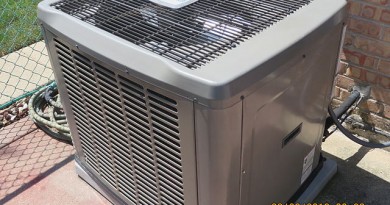How Much Does it Cost to Rewire a House?
The cost to rewire a house varies greatly depending on several influencing factors. These factors include the amount of wiring in the house, how many electrical outlets or panels need to be replaced, and whether the electrical panel itself needs to be replaced. The cost to rewire a house can also be affected by labor costs. Electrical rewiring can be a time-consuming task but is able to be completed by some homeowners. However, if you do not have skill as an electrician, it would be safest to hire a contractor. It is best to shop around when hiring a contractor and to receive quotes from each one. To rewire a house, it is important to take into account the cost for materials, with copper wiring for the entire house usually costing anywhere from $1,000 to $3,000. The amount of copper wiring usually depends on both the size of the house and the number of electrical outlets and panels that are connected to the main electrical panel. Because some cities require permits for rewiring older houses, the price of the permit must be added in to the home rewiring costs. Finally, when working with a licensed electrician, the cost of rewiring a house will also include the cost of labor. This varies depending on the contractor you choose as well as the accessibility of the wires in your home.
Average Cost to Rewire a House
After factoring in the cost for materials, permits, and labor, the average cost of rewiring a house can range from $3,500 to $8,000. These costs can be even higher in large or older homes. However, in some homes, rewiring is necessary. Today, the average amount of electrical appliances in the home requires more amps than forty years ago. Sixty amps was the standard supply of energy needed by homes forty years ago; however, today, homes usually require two hundred amps or more. Because homes today have devices such as high-definition televisions, air conditions, and computers, more amps of electricity are needed. Shortages and blown fuses may happen when voltage drops, which can harm sensitive electronics. Therefore, the cost of rewiring even old homes may be worth it. Additionally, rewiring a house can raise its value.
Cost to Rewire an Entire House
The cost to rewire a house varies depending on its size. Materials can cost $1,000 to $3,000 with an additional $70 to $120 per electrical outlet or panel. In some cases, you must add electrical panel replacement costs into your calculations. A licensed electrician may also charge more depending on the accessibility of the wires in your home. If the electrician must access the wires through the attic instead of the basement, they may charge more. Additionally, if he or she can only access the wires outside or in crawlspaces, as is true in many older homes, the cost to rewire a house is also higher. However, there are ways to lower the cost of rewiring a house. First, receiving quotes from many different contractors or electricians will ensure that you are getting the best price for labor and materials. Next, if you already working on a home improvement project, speak to your current contractor about rewiring the room. If he or she is remodeling or changing walls, it will add less of a charge for rewiring while the wall is open than for a typical rewiring. Finally, if you are low on funds, decide which parts of your home are necessary. Because electrical outlets and panels add an additional charge with each one, you can choose to rewire some now and some later. Depending on the wiring in your house, you may also be able to rewire the house without replacing the electrical panel, or vice versa. By making wise decisions, you may be able to save on the overall cost to rewire a house.
Cost of Rewiring an Old House
Size can play a large role in determining the cost of rewiring a house; however, it is not the only factor. The age of the home also plays a large role. If a home is over forty years old, rewiring the house can include electrical panel replacement costs, all new wiring, and increased labor fees for limited access to wires. This can run up to $20,000 or more. There also may be additional labor charges if the contractor or electrician has difficulty accessing the wires. Though this is a large price to pay upfront, rewiring a house can increase its market value. It also helps protect electrical appliances and stops surges in power.
Should I Rewire my House?
You may need to rewire your house if you have noticed power surges or blown fuses or if your electrical devices are being damaged. Replacing the electrical panel may also be necessary to accumulate a greater threshold for power. If your house has these problems, it also may be necessary to check them to see if they are up to code. Out-of-date wiring and circuitry can lead to dangerous problems. Additionally, if you are considering renting or selling your home one day, you should consider rewiring your home. Rewiring ensures safety for yourself or future tenants, protects electronic devices, and helps ensure buildings are up to code. Additionally, spending the extra money to rewire your home can significantly increase its market value.
Electric Panel Replacement Cost
If you are considering rewiring your home, you must also consider if the electric panel needs to be replaced. The cost to upgrade the electrical panel can range from $800 to $3,000. You must also decide what kind of electrical panel you need for your home. Electrical panels manufactured today often offer either 100 or 200 amps of electricity. The amount of amps, as well as the labor costs, will come into play when determining the electrical panel upgrade cost. Electrical panel replacement is also included in some home rewiring costs. Because electrical panels must be compatible with the wiring throughout the home, it is sometimes necessary to change one when changing the other. However, one licensed electrician can easily complete both jobs.
- 781SHARES






